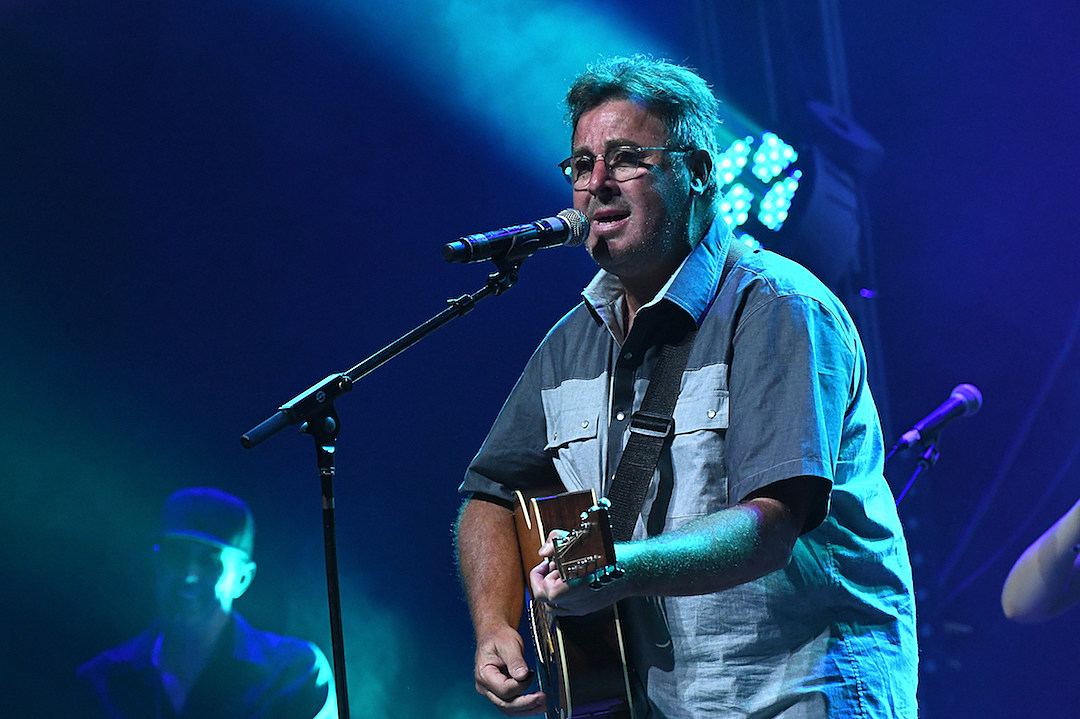
“More Than a Voice: Vince Gill on Emotion, Legacy, and the Power of Restraint”
In a candid, heartfelt conversation with fellow country legend Clint Black, Vince Gill opened up about the raw essence of his journey — one shaped not only by musical accolades but by self-discovery, honesty, and the unshakable power of emotion.
From the very start, the interview sidesteps industry glitter. “We’re not going to get into awards and all those Grammys,” Clint says with a grin. “Some of them are probably doorknobs now.” Instead, the two longtime friends sit down to talk about craft, legacy, and the hidden layers behind a lifetime of music.
Gill, with disarming humility, admits that despite a lauded career, he still battles dissatisfaction with his own work. “I go back and look at my records and I don’t like a lot of them,” he confesses. “I think that’s part of the process — getting better.” It’s this relentless pursuit of refinement that defines him: a seasoned artist still driven by the hunger to evolve.
One of the most powerful themes running through the discussion is brevity. “You learn with time to say more with less,” Gill reflects. Whether it’s knowing when to stop playing or choosing the right lyric, he believes the magic lies in restraint. It’s a lesson that came early in his career — after a producer once told him, “That was impressive. Can we try it again and just play me half of what you know?”
Clint praises Gill’s timeless ballads — songs that seem to touch something deep and eternal. Gill attributes this to emotion. “If it can move me, maybe I can move you,” he says. “That’s the only point of it. I don’t care about being perfect.” He laughs easily and admits: “I’m an emotional guy. Always have been.” Whether crying on stage or laughing until it hurts, Gill embraces the fullness of who he is.
And yet, his road has not been without sacrifice. He recalls turning down a gig with Dire Straits’ Mark Knopfler at a time when money was tight and the opportunity tempting. “I just thought — if I give up on myself now, I can’t expect anyone else to believe in me.” Not long after, his breakout hit “When I Call Your Name” changed everything.
That self-belief paved the way for one of the most ambitious projects in country music: his quadruple album, a box set of original songs exploring traditional country, bluegrass, jazz, and Americana. “Nobody was asking for it,” he smiles. “But I had the time. I had the songs.” And so, he followed inspiration wherever it led — not for charts, not for awards, but for creative truth.
Later in life, Gill found himself part of the Eagles — a band he’d long admired. “They made me an offer I couldn’t understand,” he jokes. But it wasn’t just about prestige. It was about honoring the legacy of his friend Glenn Frey and becoming part of a catalog he calls “the greatest gift” of his career.
Asked who he’d want to play with in heaven, Gill hesitates. “Not sure I’m going to get to go,” he says with a self-deprecating smile. “But maybe Chet Atkins… ‘Country Gentleman’ would be a good one.”
Through the laughter, the candor, and the shared wisdom, Vince Gill reminds us that music at its best isn’t about perfection. It’s about connection. Vulnerability. Soul. And above all — heart.